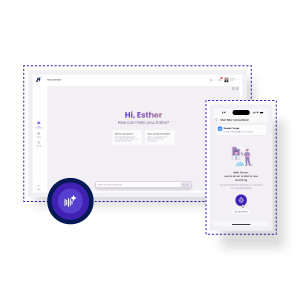The healthcare industry is on a thin line these days. On the one hand, there is an unprecedented advance in technology – devices which assist physicians in their diagnosis and help minimize documentation and enhance communication. Across the street, there is a holy duty: the preservation of patient data. This balance is difficult to achieve, but it is necessary.
At HealthOrbit AI, we hold the view that development must not be at the expense of trust. Every step of AI innovation, patient privacy is designed with both precision and protection in mind since there is a person behind every chart, scan, or SOAP Note who is relying on us to do it right.
Why Balancing Innovation and Privacy Matters in Healthcare?
Healthcare is unique. Even a minor breach in the security of patient data is not a simple IT problem, but a loss of confidence that can have a real impact on people. Although new tools are changing clinical workflows, the expectation of improved care must never override the obligation to protect personal information.
This is why AI innovation with patient data privacy isn’t just a buzzword. It is the technology upon which people work, not technology that works against them. A PubMed quality improvement study (Northern/Central California) demonstrated that ambient AI decreased cognitive load and reduced time spent on documentation (e.g., from ~6.2 to ~5.3 minutes per appointment).
AI Innovation Patient Privacy: Building Trust Through Protection
The heart of AI innovation patient privacy, lies in this principle: no matter how advanced the technology, it should never compromise confidentiality. This is how we do it at HealthOrbit AI:
- Encrypted systems: All notes, billing information, and records are encrypted from end to end.
- Privacy by design: Privacy is part of our design, rather than an optional feature.
- Minimal access: Only authorized clinicians have access to sensitive data, ensuring it is both safe and accountable.
This approach keeps innovation aligned with the human side of healthcare—trust. Because when patients feel safe, they open up more. And when clinicians feel secure, they deliver care more confidently.
Privacy-First AI Healthcare Innovation
It’s easy to get caught up in the excitement of new features or clever algorithms. But at HealthOrbit AI, we put equal weight on responsibility. Privacy-first AI healthcare innovation means every update, integration, or new release is evaluated not only for performance but also for patient safety.
That’s why our best ambient scribe software doesn’t just capture SOAP Notes accurately—it does so while meeting strict privacy and compliance standards. And why Medical Billing Software ensures claims are processed with both efficiency and security.
Innovation without privacy can’t last. Privacy without innovation can’t keep up. We bring the two together.
Healthcare AI Compliance and Privacy: More Than Just Regulations
When people hear “compliance,” they often think of legal checkboxes. But healthcare AI compliance and privacy go beyond following rules. It’s about shaping a culture where protecting patient information is as important as treating the illness itself.
That’s why our solutions align with:
- HIPAA and other international healthcare privacy standards
- Strict EHR integration protocols
- Secure data handling across billing, diagnostics, and documentation
Compliance is the floor, not the ceiling. Our goal is to build systems that raise the bar for the entire industry.
Ethical AI Innovation in Healthcare: Doing the Right Thing
Ethics and technology don’t always go hand in hand—but in medicine, they have to. Ethical AI innovation in healthcare means asking tough questions before launching tools:
- Does this feature protect patient dignity?
- Could it unintentionally expose sensitive information?
- Are providers and patients fully in control of their data?
At HealthOrbit AI, we use these questions as a compass. Whether it’s developing ambient AI to reduce paperwork or improving billing accuracy, the ethical choice always guides the technical one.
How HealthOrbit AI Balances Technology and Privacy Every Day?
Here’s what it looks like in practice:
- SOAP Notes with security: Our scribing tools capture clinical notes without leaking sensitive data.
- Medical Billing Software with compliance: No shortcuts, no loopholes—just clean claims and accurate records.
- EHR integration with privacy-first design: Every connection is monitored and encrypted to ensure seamless yet secure workflows.
- Ambient AI tools built with trust: They save clinicians time while protecting the information that matters most.
This balance is what allows us to move healthcare forward without leaving patient trust behind.
Conclusion
Moving forward, care is sure to become even more digital. That’s why keeping AI innovation patient privacy at the center isn’t optional–it’s the only way forward. Patients need transparency, healthcare providers need safe tools, and the healthcare system needs technology it can count on.
HealthOrbit AI has a straightforward mission to achieve: to provide smarter, faster, and more precise healthcare support and protect the privacy of all patients.
Innovation without trust is fragile. Let HealthOrbit AI show you how to build care that lasts. Register Now
FAQs
What does AI innovation patient privacy?
It means the creation of new healthcare technologies, which improve care, yet preserve sensitive patient information at each stage of patient care.
How does HealthOrbit AI protect patient data?
With encryption, stringent access control, and adherence to standards such as HIPAA, patient information remains confidential.
What is privacy-first AI healthcare innovation?
It is the philosophy of making technology a bit more private, not making it private after the fact. All the tools of HealthOrbit AI are based on this pattern.
How is compliance part of innovation?
Compliance is a process that promotes the safety of tools, security of patient rights, and reliability of both clinicians and patients.
Why is ethical AI innovation in healthcare important?
Since technology affects actual individuals. Ethical innovation makes tools both safe and transparent and consistently focused on the well-being of the patient.




